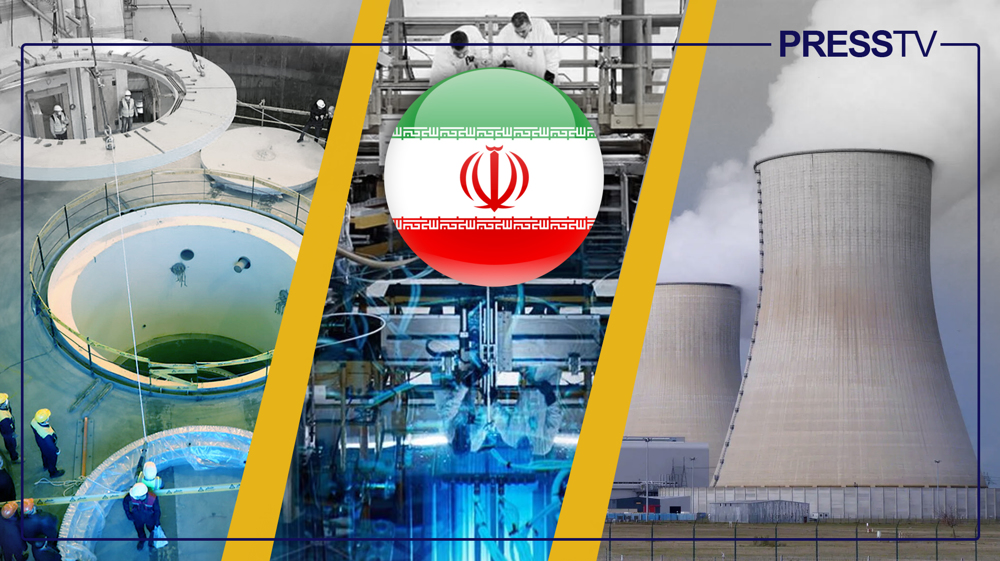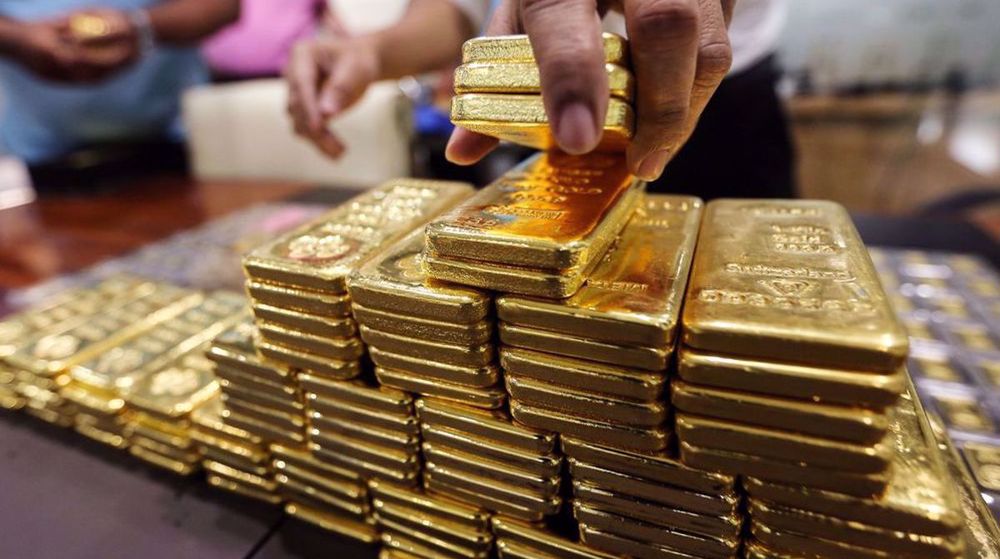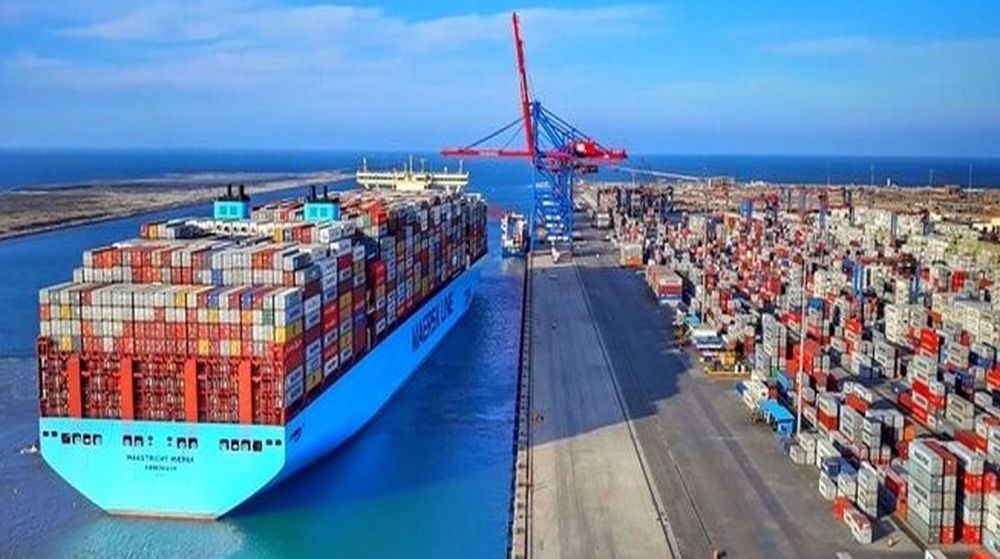Iran’s production of world’s second strategic nuclear substance
Heavy water is the second strategic nuclear material after uranium in the world and Iran is one of the five countries producing this compound with high purity and production efficiency which many countries are looking to buy despite sanctions.
Under the 2015 nuclear deal, Iran is allowed to use heavy water in its modified Arak nuclear reactor, but must sell any excess supply of both heavy water and enriched uranium on the international market.
The deal requires that the heavy water inventory not exceed 130 tonnes, but the US withdrawal from the agreement in 2018 has allowed Iran to ramp up production and see its stocks snapped up on the market.
Head of the Atomic Energy Organization of Iran Mohammad Eslami told journalists during a Friday tour of the Heavy Water Production Plant in Khondab near Arak that Iran’s heavy water has many clients. He said the country is now investing in heavy water derivatives.
“Our clients have noticed the high quality and purity of Iran's heavy water,” he said. “Heavy water derivatives are very expensive and we are completing investment in this high added value chain.”
The US had undertaken to buy 32 tonnes of Iranian heavy water for use in its nuclear reactors, but it stopped the purchase after former president Donald Trump unilaterally abandoned the agreement.
After years of fits and starts, Iran’s nuclear industry is coming of age, having weathered the most intrusive international inspections ever in the world which put the brakes on the pace of its progress but never managed to stop it.
It is now where the nuclear economic prosperity is kicking in.
According to Eslami, the nuclear industry is one of the highest added value industries in the world.
“We had neglected this important matter, but we want to pay attention to the nuclear economy in a special way,” he said.
Leader of the Islamic Revolution Ayatollah Seyyed Ali Khamenei called on officials in June to take necessary steps to commercialize nuclear products and services.
"Iran’s nuclear products and services must be commercialized. There is a good demand for our achievements in the international markets which can be used to help our economy and income. There should be cooperation with allied countries," he said.
Since 2021, Iran has registered 159 scientific achievements and counting in the fields of nuclear fuel, energy, laser, plasma, radiation, environment as well as water and soil.
In the past one and half years, Eslami said, Iran’s uranium enrichment capacity has grown as much as 11 years. When he took office only two uranium mines were operating, but the number has reached eight and will surpass 20 next year.
Earlier this month, Iran unveiled a uranium mine in the northwestern Khoy region, which the Iranian nuclear chief touted as a “hub” for producing raw material needed in nuclear power production. The Jan-e Sar mine also contains molybdenum, and a number of other rare earth elements.
Heavy water, also known as deuterium oxide, is a compound made up of oxygen and deuterium which is a heavier isotope of hydrogen.
The heavy water produced at Khondab is used in a variety of fields, including biology, medicine, physics, industry, agriculture, oil and gas, but its most important application is in nuclear power plants as a coolant and in production of radiopharmaceuticals.
The Heavy Water Production Plant is one of the largest nuclear facilities in Iran. Its construction began in 1988 near the village of Khondab where all stages of design and implementation were carried out by Iranian experts.
Two units of the complex, each capable of producing 8 tonnes of heavy water a year, came into operation in 2006, but the overall capacity rose to 20 tonnes in 2013.
Currently, Iran is capable of producing more than 100 tonnes of heavy water with high purity, a feat no country has ever been able to achieve, according to officials at the plant.
Other products of the plant include isotopic compounds, deuterated solvents and the stable isotope of oxygen-18 with 97% richness.
Oxygen-18 is an important precursor for the production of fluorodeoxyglucose (FDG), a radiotracer which is used to diagnose and determine treatment plans for patients with various types of cancer, cardiovascular and neurological diseases.
Iran is one of the key producers of oxygen-18, which has come into wide use recently, especially in developed countries. Several important European and Asian countries currently source the product and other deuterated compounds from Iran.
Fluorine-18 labeled biomolecules are among the other products of the Khondab heavy water plant, used in the diagnosis of metabolic defects in newborns and newborn screening.
Overall, some 300 heavy water and deuterium derivatives are produced in the complex, which are commercially competitive with those of major producers and sometime even surpass them.
Iran also sits pretty when it comes to production efficiency and quality of its heavy water so much so that world countries are not willing to give up or ignore it in spite of the extensive and unprecedented sanctions.
Nevertheless, financial profit is not the primary goal for Khondab heavy water officials. Rather, they are trying to test themselves in the market to see if the entire chain is working properly.
Mesbah Energy Co., founded in 1998, has built a name for itself as one of the five leading companies in the world in producing stable isotopes, solvents and deuterized compounds.
Russia, India and some EU members have reportedly asked Mesbah Energy to open representative offices in those countries.
Hamas thanks Iran, Resistance Front following achievement of ceasefire in Gaza
'Capitulation': Israeli officials and media concede Gaza defeat as truce unfolds
'Gaza has won': Social media users react to ceasefire with mix of relief, joy
Iran seeks South Korea’s assistance for AI, fiber-optic projects
VIDEO | Iran's 'Eqtedar' (Power) maneuver
Israel hits HTS military target in Syria for 1st time since fall of Assad
VIDEO | Press TV's news headlines
Israel has slaughtered 13,000 students in Gaza, West Bank










 This makes it easy to access the Press TV website
This makes it easy to access the Press TV website